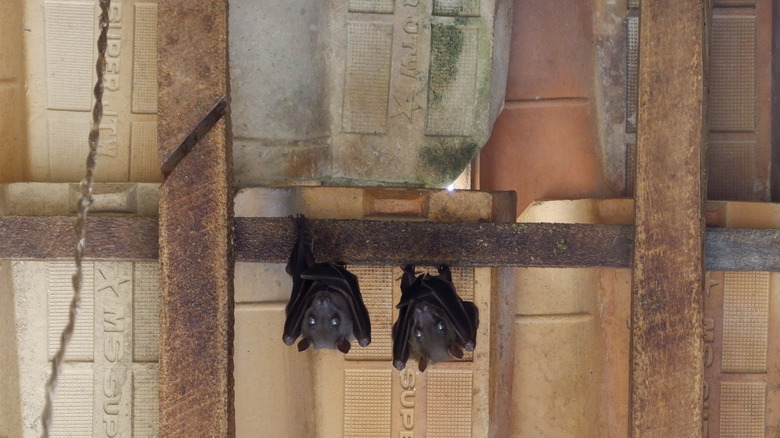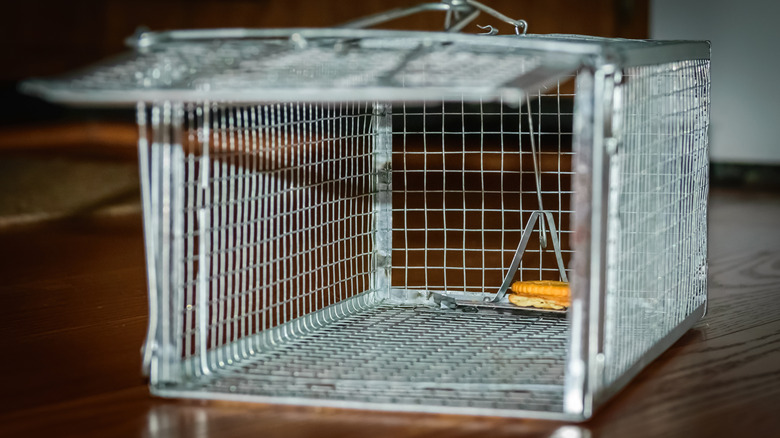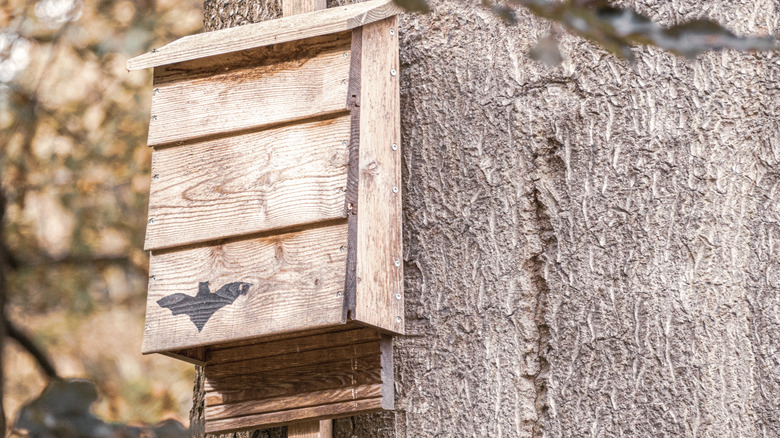Tennessee's Summer Heat Is Causing Bats To Seek Refuge Inside Homes. Here's What To Do About It
We may receive a commission on purchases made from links.
Summertime, according to Will Smith and DJ Jazzy Jeff, is a "time to sit back and unwind." It's a time for vacations, barbecues, and extra-long days. Of course, there are some side effects of summer that aren't so relaxing, like extreme heat, bugs, and your kids being around 24/7. Tennessee homeowners are experiencing an additional summer side effect this year: an increase in bats entering their homes.
Tennesseans don't see much bat activity in the winter, when the winged mammal's food supply (mainly insects) is low. During the winter months, bats either hibernate or migrate to warmer temperatures. But in the summer, Tennessee is home to 16 bat species. Bats like to roost in warm, dry places, and the extreme heat and above-average precipitation Tennessee is currently experiencing have driven bats indoors. Bats will typically stick to high, dark, uninhabited spaces like chimneys and attics, but every once in a while, they get lost and wind up in a living area. This can create quite a shock for both the bat and the home's human occupants.
If you see a bat in your home, whether it is in the attic or living room, don't panic. The bat is likely more frightened than you are and is not interested in turning your loved ones into vampires. However, bats can carry harmful diseases, and they will defend themselves if threatened. Removing bats from your home can prove difficult, so the best thing to do is call a professional.
Why are bats entering Tennessee homes?
Although bats prefer the warmth, they experience heat stress in temperatures over 104 degrees. While Tennessee experiences very few triple-digit heat days, bat boxes and other roosting areas can easily warm up to that temperature. With many Tennessee cities reporting higher-than-average temperatures this summer, bats are flocking to air-conditioned homes for some relief.
Bats may also be seeking refuge from rain. Bats avoid rain because it makes it very difficult for them to fly. This summer is one of the wettest on record for many parts of Tennessee (this May was the seventh wettest Nashville has seen since 1871). This increased rainfall affects bats in two ways. First, it drives them into your home seeking shelter. Second, it makes them stir-crazy. After hibernating in the winter and caring for their young in the spring, bats are most active in the summer and early fall. But if they have to spend most of that time hiding from rainfall, they will get anxious. This means they are more likely to venture away from the uninhabited areas of your home and unintentionally enter active living spaces.
Call a pro if you find a bat in your home
Bats can carry diseases, so if you see one in your home, don't touch it and call a professional removal service right away. Another reason to call a professional is to make sure the bat removal is done legally. Four of the bat species found in Tennessee are endangered, and others are on the decline. Therefore, improper bat removal could result in fines. Luckily, many pest control companies throughout Tennessee are familiar with these protected species and will use humane efforts to remove and relocate bats in accordance with Tennessee law. If you are determined to remove any bats yourself, contact the Tennessee Wildlife Resources Agency to get approval before doing so.
To keep bats away from your home in the future, check for holes in your home's exterior (a bat can slip through a quarter-sized hole). Fill holes with an expanding sealant like Loctite Foam Spray. To keep bats away from your porch and patio, replace incandescent bulbs with LED bulbs, which attract fewer bats and insects because they don't emit UV light.
Bats create a healthy ecosystem. They are beneficial pollinators and provide excellent pest control. Putting up a bat house, such as WildYard's BIGBATBOX, will provide an alternate roosting spot and encourage them to stay out of your home. Place the bat house away from your living space, either on a tree or on the side of a structure like a shed or barn.


